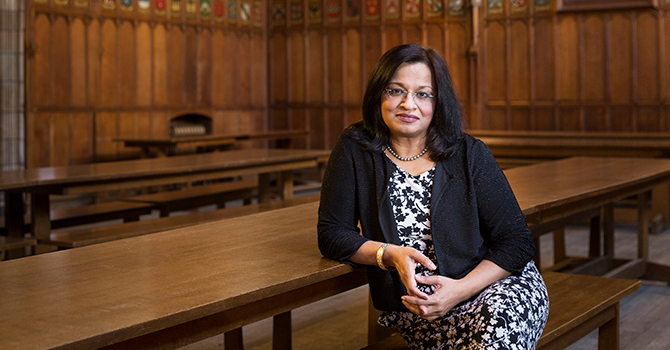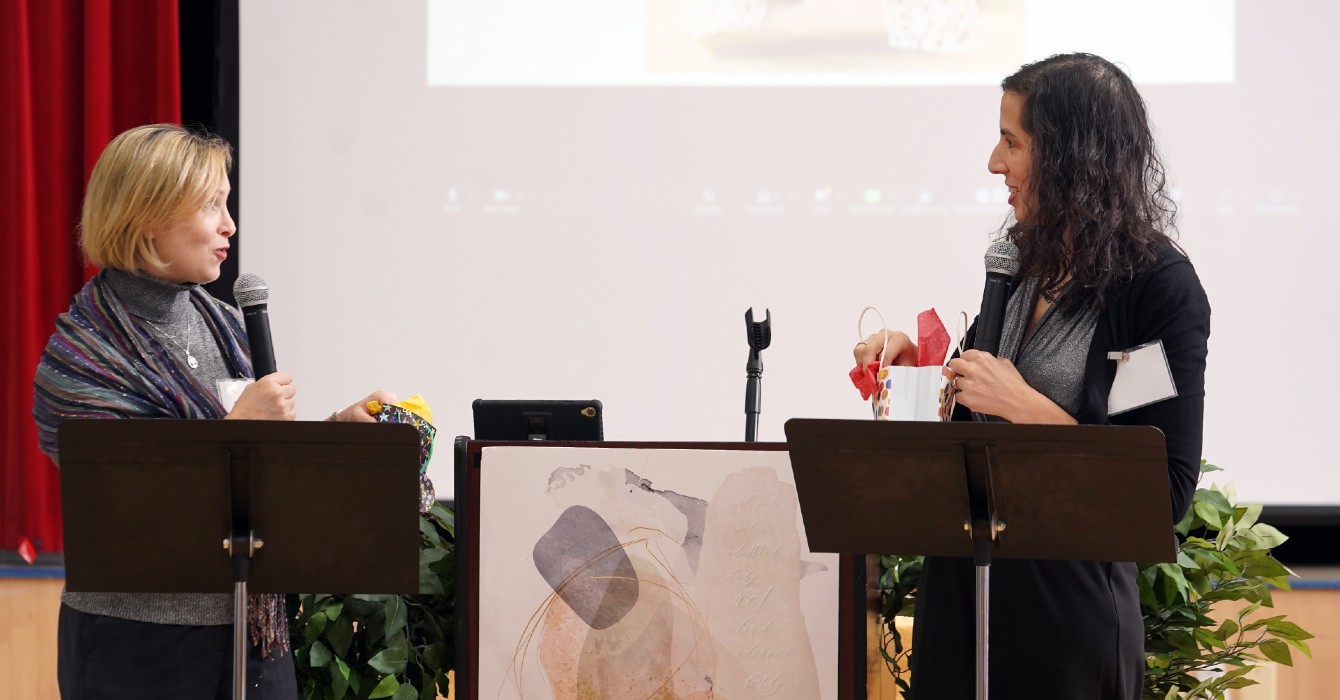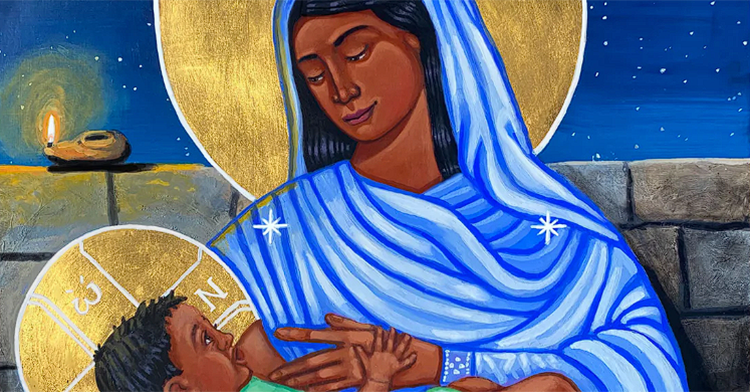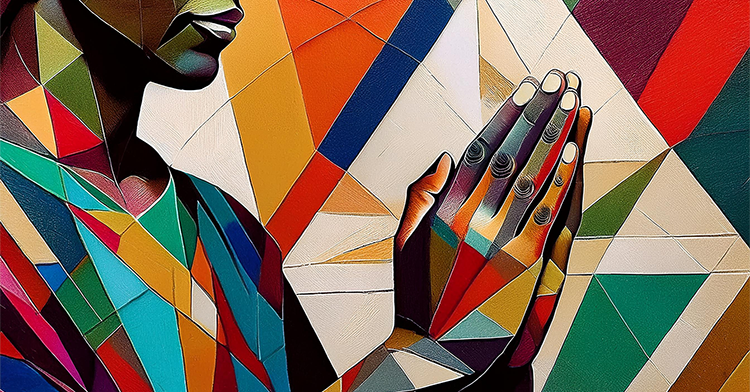Throughout her career, scholar Mona Siddiqui has studied how cultural relationships shape our public discourse, particularly on issues of religion and ethics.
Siddiqui’s work has long concentrated on Islamic jurisprudence and Sharia law. She has also written on religious concepts of hospitality and delivered a series of Gifford Lectures on suffering and struggle.
A recurring theme is the intersection of Islam and Christianity, which is the topic of her four-volume collected work, “Muslim-Christian Encounters,” and a frequent subject of her commentaries on BBC Radio 4’s “Thought for the Day.”
Most recently, she has turned her attention to how religious traditions interpret practices of gratitude and thanksgiving.
Siddiqui is assistant principal for religion and society at the University of Edinburgh, where she also holds the post of dean international for the Middle East. She joined the faculty of Edinburgh’s Divinity School in 2011 as the first Muslim to hold a chair in Islamic and interreligious studies.
It was in this capacity that she was invited to examine the subject of generosity by the Issachar Fund, a private foundation that explores questions of science, theology and ethics.
Rather than a single large conference, she devised “Gratitude: Christian and Muslim Perspectives,” a series of three international workshops, each with about a dozen scholars. The participants meet to share papers and engage in open-ended discussions on a broad spectrum of religious and philosophical considerations.
The first workshop was held at Edinburgh in December 2018 and the second at Yale in August 2019. The final meeting will be in Dubai in January 2020. Essays derived from these meetings will be collected into a volume expected to be published in 2021.
At the core of Siddiqui’s work stand questions of ethics and moral choices -- fundamentally, the study of our relationships with individuals, groups and God.
“When someone stands in front of me, how I decide to be with that person is a moral decision,” Siddiqui said. Most matters of conduct, whether laws, commandments, doctrines or codes, have roots in ethical practice.
While at Yale, Siddiqui spoke with Faith & Leadership contributor Timothy D. Cahill about gratitude, ethics and the importance of relationship. The following is an edited transcript.
Faith & Leadership: What attracted you to the gratitude project?
Mona Siddiqui: For me, everything rises or falls on the basis of relationships, and I think gratitude is essential to good relationships.
By “gratitude” I don’t necessarily mean saying thank you all the time but that you create in both your personal and your professional life -- whether it’s your marriage, your children or your work colleagues -- an atmosphere of worth. Not [just] your own worth but the people who are part of your life -- that they’re worthy as well.
And endemic to that, I think, is being grateful to God for the fact that you are in relationships that give meaning to your life.
I observe two sorts of people: people who think they are entitled to everything and people who feel gratitude for all that they have. I don’t want to be in the first category.
F&L: Both Christianity and Islam emphasize the necessity of gratitude and, by extension, the sin of ingratitude.
MS: Yes, absolutely. But in the Quran, it’s ingratitude that has a greater focus -- God loves those who are patient and give thanks, but the majority of people do not give thanks to God, which is to say, they are ungrateful.
F&L: Your work has dealt broadly with Islamic ethics, extending the conversation from law to the arena of ethical practice.
MS: For me, the ultimate aim of Islamic law is Islamic ethics, but as a discipline, ethics has always been subsumed into the hardware of law. But our lives aren’t run by legal constraints [alone].
What I want people to understand is that law is only partially understood without the ethical conscience; ethics comes from our sense of relationality.
There are certain things that are explicit legal commands [like the prohibition against eating pork]. Ethics doesn’t come into it. But such explicit prohibitions are very few.
The majority of the formulation of law is really ethical; whether it’s marriage law, criminal law, it’s all about ethics.
F&L: One of the most provocative points raised in the gratitude workshops is the idea that all virtues have their shadow -- that there might be a dark side to generosity and gratitude.
MS: Yes, absolutely. That’s the interesting side for me. I had a conversation [recently] about the psychology of gift giving.
You might give me a gift with good intentions, but you can’t determine how I’m going to feel about it. You can’t impose your feelings of beneficence. I might be feeling, “How am I going to repay this?”
F&L: So one does not want to be ungrateful, but built into the exchange of gifts is some burden of obligation?
MS: Human relationships are about balancing obligations. I think in personal relationships, you have to think about what it is you are grateful for. We’re grateful for our children, we’re grateful for our partners, but the relationships that we build around them can often be difficult.
And yet, as a believer, I know that blessings and joys in life demand a human response.
My own gratitude for those in my life also means I live with a certain amount of fear and anxiety that all I have can be taken away from me. And that fear, if I can be personal for a moment, that fear of things being taken away leads me to be far more grateful.
It may sound like a strange way to speak of gratitude.
F&L: One scholar has suggested that ungratefulness can grow from a resentment of an imbalance of power, even in our relationship with God.
MS: I think most of us are ungrateful in the sense that we don’t appreciate the weight of and worthiness of gratitude in our lives.
But I also think that for the most part we’re very good at saying “thank God!” when something good happens but we don’t know how to cope when bad stuff happens. We don’t know how to be with God in that sense.
F&L: In his Epistle, St. James writes that we should rejoice in our suffering, because it teaches us to endure and resist the evil of sin (James 1:2-16).
MS: Evil is very much an existential thing in Christian theology, whereas when a Muslim talks about it, it’s far more prosaic. Evil doesn’t have a straightforward translation in Islamic thought.
It’s the bad things we do, so there’s no kind of redemption from evil; there’s no redemption from suffering.
Adam -- humankind -- has never lived in a sinless place, so the only concept we have of sinlessness is paradise, but we cannot know what that really means.
F&L: You’ve written, “Humankind is not damned by the impossibility of overcoming sin, for there is no sinless place to which we can return, only a better place which we can create.”
MS: That’s right. In the Quran, the parallel to the biblical Genesis story is not about Adam being cursed, not an alienation from God. God says to Adam, “You were always destined for earth.”
There’s a sense that Adam is touched by consciousness. This is where the fun begins. This is where life really begins. It’s the waking up from a kind of sleep, says the Indian poet Iqbal. That is all Adam’s done.
Muslim poets have played around with this quite a lot; it’s a bit of the felix culpa, but far more emphasized. The poets play around with the theme of Satan basically teasing God, saying, “Was this it? Was this my challenge? He was so easy!”
That’s the predicament in which we find ourselves. Commanding rights and forbidding wrongs -- we are pulled into two different directions. The temptation to do wrong, the temptation to be led astray from the righteous life, is very strong. That’s what you’re constantly trying to pull yourself away from.
F&L: A constant movement toward perfection?
MS: A constant movement toward bettering yourself. I don’t think you can use the concept of perfection.
F&L: And by “bettering yourself” you mean becoming ever more faithful?
MS: Intrinsic to faith is repentance. So you’re going to make mistakes, do wrong.
There’s a very famous tradition in which someone asks the Prophet [Muhammad], “Can you tell me a prayer so that I will not sin anymore?” And the prophet is about to answer when God intervenes: “Don’t, because if my servant doesn’t sin, upon whom am I going to bestow my mercy?”
I think this is beautiful. I mentioned this to a [Muslim] audience once, and they objected, saying, “How can you say God wants us to sin?”
I replied that this is not about sin but about repentance, that what God really wants is for you to repent. God knows you’re not going to lead a totally righteous life. As long as you keep turning to him, that’s what faith is.
We do [as we do] because we love God and we know God loves us and wants us to turn to him.
F&L: How do you define “love” in this context?
MS: I don’t think of my relationship with God as divine love but maybe more a nearness. When I wake up, I’m thinking of God within me. I don’t leave the house without saying a prayer. If my kids are going out, there’ll be a prayer.
Even as I speak to you now, I feel that God is present within me. Is that divine love? I don’t know. The language is different.
So when Christians say, “God loves me,” it always strikes me as a particularly Christian statement.
Muslims don’t often speak like that. There’s a sense of always striving toward God. Worship and obedience and gratitude is all about nearness to God, even though the Quran says God is nearer to you than your jugular vein.
F&L: Is your prayer, then, more one of petition or one of gratitude?
MS: I think it’s just a little cry, a kind of, “Oh Lord, I’m putting it out there, my trust in you, and you know what I’m thinking.”












